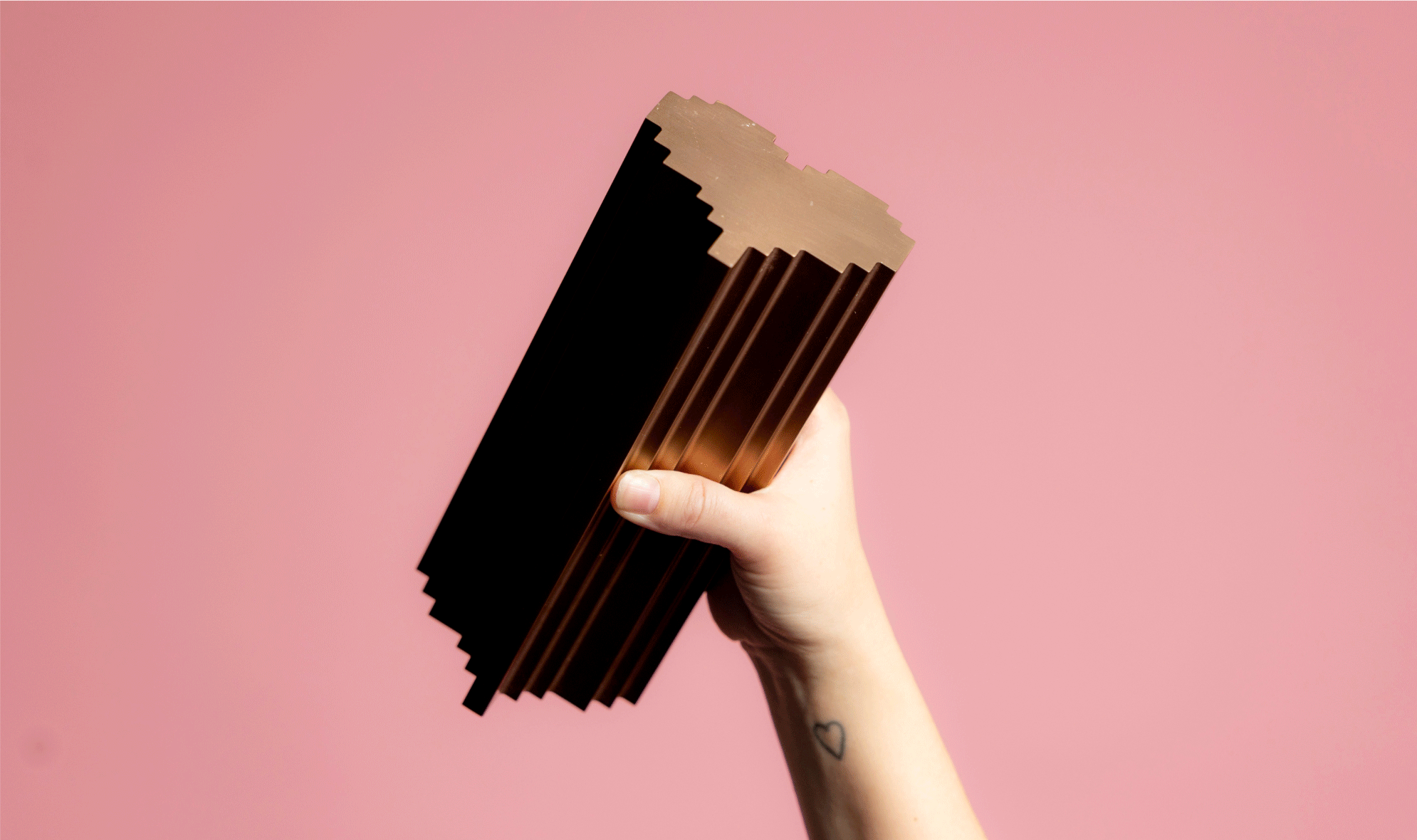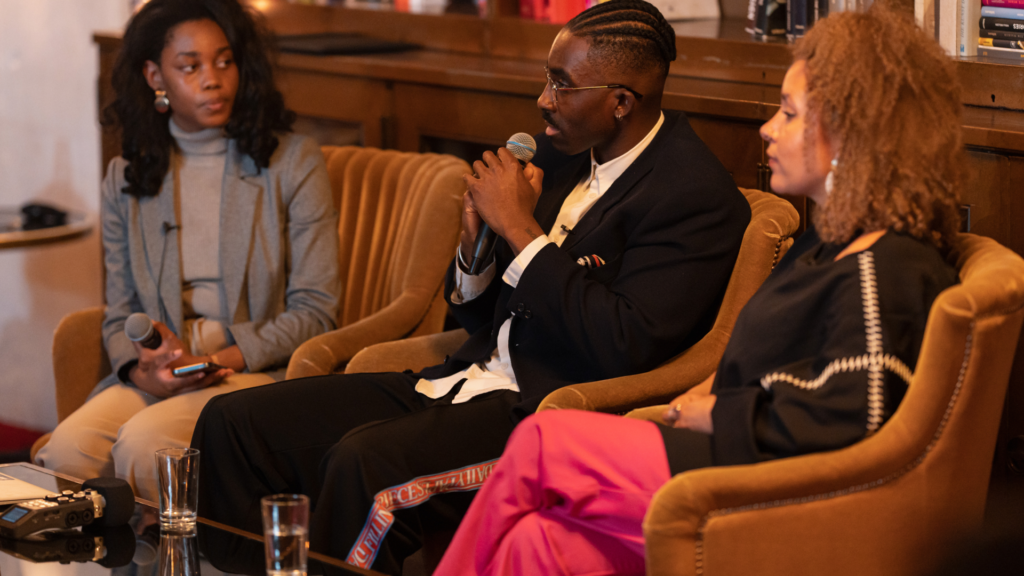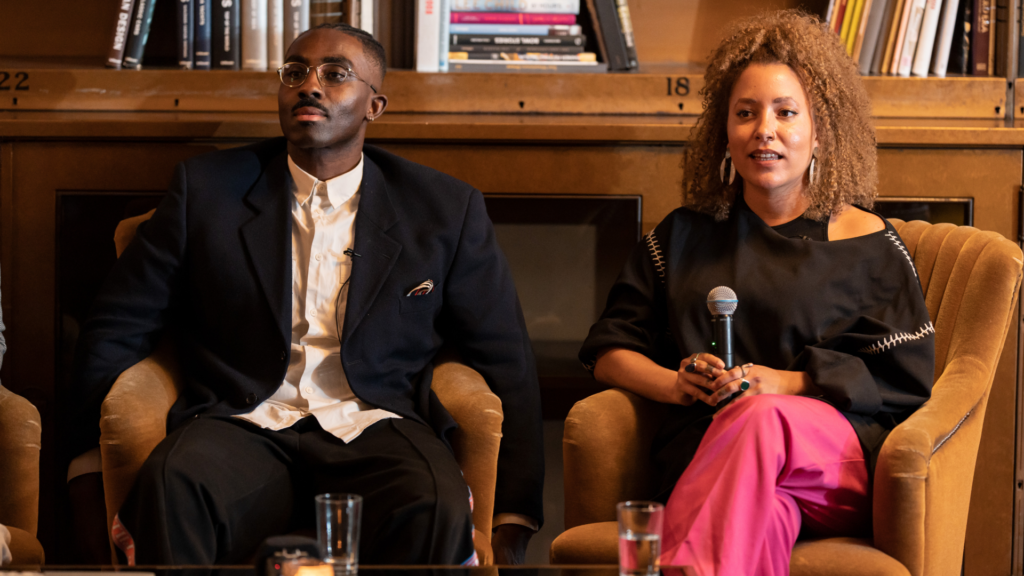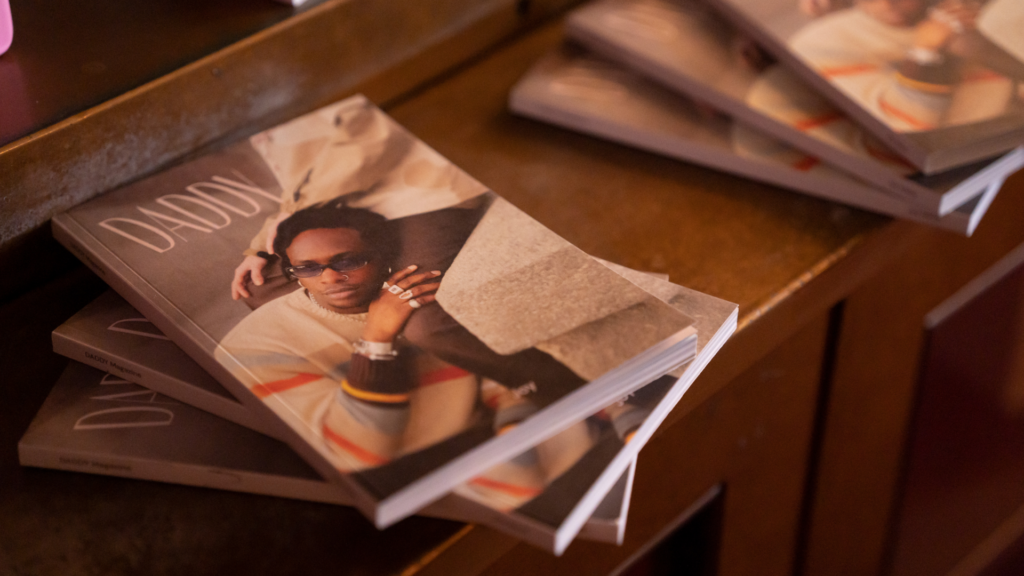In this edition of our Partner Profiles series, we spoke with DADDY Magazine, an inclusive and narrative-based publication empowering underrepresented voices in media.
Launched in 2016, DADDY came out of frustration over lack of thoughtful representation of BIPOC and LGBTQIA+ creatives in mainstream media. They give contributing writers full creative control over their published work, creating a dedicated space to highlight their lived narratives and stories. DADDY’s work is multifaceted, as they also run a consultancy that informs a wide range of companies and institutions on how to better communicate with diverse audiences and talent.
We were proud to sponsor and support a panel discussion hosted by DADDY in May, titled “Virtual Storytelling in BIPOC Communities.” It was an important dialogue on what it’s like to navigate the film industry as a Black creator, featuring panellists German-Ugandan filmmaker, poet and visual artist Mona Okulla Obuka and Emmanuel Amoako-Jansen, Founder & Creative Director of imagination.
We spoke with the Founder and Editor in Chief of DADDY, Kemi Fatoba, to explore their insights on the current media landscape, learnings from fostering a global platform where varied experiences can be explored with nuance, and more.
What was the impetus to forming DADDY, and why was publishing the perfect medium for this new endeavor?
I always say that DADDY was born out of frustration. We launched our online magazine in 2016, at a time when there was a lot of talk about “embracing diversity” in media and advertising but it only happened on a surface level. The decision-makers looked nothing like the talents in their campaigns and while there’s a growing awareness that this situation needs to change, things are moving incredibly slowly. We decided to create a platform that centres underrepresented voices and gives our contributors the opportunity to tell their stories, their way because gatekeeping and elitism is rife in the publishing industry. Being able to have this freedom is quite rare and much needed, and that’s what keeps us going.
In your experience, how have you seen Black creatives shape both the publishing industry and digital industry across Europe, and creative industries across Germany’s creative hubs?
The thing is that there has always been this amazing pool of Black talent in Europe, but it was so difficult to be seen and given opportunities that many of us decided to move to the UK or to the US, or other places that were more open to giving us a seat at the table. When I moved to Berlin in 2015, the lack of BIPOC representation in front and behind the camera was shocking. I lived in London before and had gotten so used to seeing a variety of races, ethnicities, body types etc. in the media that the change was really apparent. We decided to do something about this, created our own platform, and many other BIPOCs across Europe did the same in the last couple of years. As a result of that, traditional media could no longer ignore us. It feels good to know that we played a small role in these changes and it’s important to remember that none of this happened overnight, or because of a sudden awakening in the summer of 2020. Black activists have laid the foundation for the progress we’ve seen in the last years by protesting and advocating for us for decades.
Your issues have very unique themes that feel both personal and unifying—the Joy Issue, the Dreams Issue, and the Together Issue for example. How are these themes relevant to the overall mission of DADDY, and what you hope to share with readers?
I think it’s important that underrepresented communities aren’t pigeonholed and reduced to stories about trauma, pain and suffering. Traditional media tends to do that, and while it’s important to inform and raise awareness about all the terrible things that are happening, it’s also important to remind ourselves that our experiences are multifaceted and beautiful too. We don’t create clickbaity content and pit different groups against each other to get a reaction out of our readers; we aim to be a safe space where people can read and write about Black joy, queer love, gender euphoria and so on. You don’t need to be a part of a certain community to connect with the things we create, you just need to respect and empathise with people who might have different perspectives than yours, that’s it really.
On top of publishing DADDY Magazine, you also run a consultancy to help global brands, institutions, and creative shops connect better with diverse audiences. In what ways does your own work in engaging with BIPOC and LGBTQIA+ creatives and audiences shape your consulting?
We constantly apply what we learn from our work as a collective to our work at the consultancy. All of our consultants are BIPOC, some are also part of the LGBTQIA+ community, which is rare because weirdly, there isn’t a lot of diversity in the DEI sphere. This means that we look at everything from an intersectional point of view and also question our own beliefs constantly. You need to be willing to ask yourself questions, like “Why are there no BIPOCs in our leadership team?” or “What do we do to retain ‘diverse’ hires and make them feel welcome and not tokenised?” If you are serious about creating a better work environment for everyone, it’s essential to have uncomfortable conversations about privilege and power dynamics.
The level of work in this space has grown massively due to COVID and other pivotal sociopolitical events from the past three years. How has your consultancy work evolved in response to these global shifts in attitude?
Our clients are open and aware of the areas that need improvement, and that’s important to us because we don’t talk to people who are resistant to change and not interested in BIPOC or LGBTQIA+ perspectives. Especially young people are very engaged, knowledgeable, and willing to address difficult topics.
We’re asking everyone we speak to this question: How do you define the “European Internet” and what does it mean to you?
Good question! I grew up with Eurodance and shows like Graham Norton’s “Eurotrash”, so I’d say in its early days, it was camp, fun and very playful. Since Brexit, I pay more attention to what’s happening in places like Paris, Lisbon, Amsterdam or my hometown Vienna and it always brings me joy to come across people or platforms with a similar mission to ours. So I guess to me it means finding community and creating spaces we didn’t have when we were younger.
Dive into and support DADDY’s mission to amplify and center the voices of marginalized communities. Keep an eye out on their website and social media for their upcoming film about celebrating Black joy!







